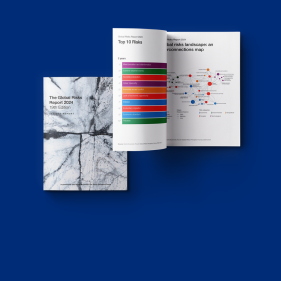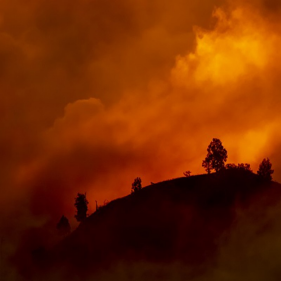Public sector leaders are grappling with an ever increasing array of economic, social, and security challenges. Marsh McLennan delivers innovative solutions to governments and non-profit organizations that reduce risks, manage uncertainty, and strengthen public trust.
Disaster Resilience Center of Excellence
Insights, expertise and capabilities to help public sector leaders with disasters.
Disaster Resilience Center of Excellence
Insights, expertise and capabilities to help public sector leaders with disasters.
Public Sector Perspectives
-
 Read More
Read MoreMarsh Global Risks Report 2024 The top risks for 2024 and beyond. -
 Read More
Read MoreResources Ukraine Recovery Despite the ongoing hot war in Ukraine, attention is turning to how to rebuild the country. -
 Read More
Read MoreReport 2023 State of flood report: The way to flood resilience Flood risk is rising with more floods, in more places, more frequently. Learn about proactive solutions for flood resilience. -
 Read More
Read MoreWith UN Race to Resilience Building a Climate Resilient Future We share how the global insurance industry can adapt to climate change, seize opportunity, and build a climate-resilient future. -
 Read More
Read MoreWith UK National Preparedness Commission Building Confidence in the Future Greater efforts to measure national-level resilience will strengthen public governance, decision-making, and investment. -
 Read More
Read MoreReport Public Sector Risk Report: Australia This report charts the significant challenges that local Australian government leaders identify and the interconnectivity of the risks on their radar. -
 Read More
Read MoreArticle Changing the Unchangeable Three steps to overcome scale, complexity, and bureaucracy -
 Read More
Read MoreReport Community-based Catastrophe Insurance for Wildfire Risk The Nature Conservancy joined forces with Guy Carpenter specialists to write a report that considers new approaches to deal with mitigation for wildfires. -
 Read More
Read MoreReport Global Risks Report 2023 Tougher trade-offs risk eroding climate action, human development and future resilience. -
 Read More
Read MoreReport Fulfilling a Legacy of Societal Risk Management This initiative applies five core insurance sector capabilities to a series of innovative Pioneer Projects that illustrate the power of insurance in risk reduction efforts. -
 Read More
Read MoreWebtool Marsh McLennan Flood Risk Index The Marsh McLennan Flood Risk Index showcases the firm’s unparalleled expertise in flood risk assessment and management. The index provides an overview of flood risk and its potential implications on human and economic systems across countries, and supports the commercial priorities linked to the climate resilience and protection gap megathemes. -
 Read More
Read MorePerspective Why Businesses and Government Must Fight Cyber Threats Together Explains four ways in which businesses and governments can join forces in the battle for cybersecurity. -
 Read More
Read MoreJournal De-risking the Transition An article series exploring the risks preventing investment in transformational low-carbon tech and business models — and how these can be overcome. -
 Read More
Read MoreVideo Navigating the Transition to a Low-Carbon, Resilient Future Rob Bailey, Director, Marsh McLennan Advantage and Dr. Daniel Quiggin, Senior Research Fellow, Chatham House discuss the strategies that government officials and institutions are focusing on in the transition to a resilient, low-carbon economy, as well as the long-term trends and opportunities to build net-zero futures. -
 Read More
Read MoreReport Preparing for Frontier Risks in the New Economy Recognizing that attention and resources are focused on managing immediate crises, this chapter spotlights a unique kind of risk alongside the predicted and the almost-impossible-to-predict: “frontier risks” – risks that emerge at a frontier as technologies surface or human and societal forces shift. These risks are characterized by their unknown likelihood, unknown impacts or both. -
 Read More
Read MoreWebtool Climate Health Threat Illustrator Climate change is increasing health risks and costs for people and businesses worldwide — and its effects will intensify over time. Disease burden and disparities are likely to worsen, and 2 out of 3 major cities expect climate change to seriously compromise their public health assets and services.
